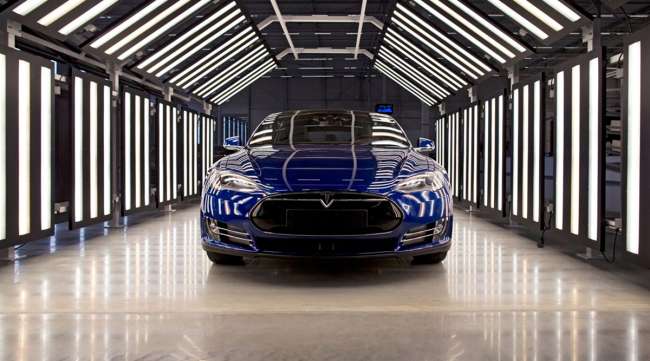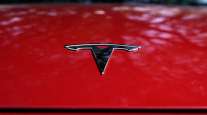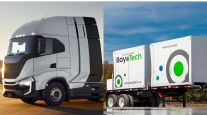Tesla Pursues US Battery Plant With China’s CATL

[Stay on top of transportation news: Get TTNews in your inbox.]
Tesla Inc. is looking to build a battery plant in the U.S., according to people familiar with the matter, in what would likely be a controversial arrangement with China’s dominant electric vehicle battery manufacturer.
The EV maker discussed plans involving Contemporary Amperex Technology Co. Ltd. with the White House in recent days, said the people, who asked not to be identified revealing private conversations. Tesla representatives sought clarity on the Inflation Reduction Act rules that the Biden administration is finalizing this week, according to some of the people. Rohan Patel, the company’s senior global director of public policy, was among those involved with the discussions, one of the people said.
Tesla wants to pursue a deal similar to one that Ford Motor Co. announced last month in Michigan with the battery maker, known as CATL, to construct a plant wholly owned by the U.S. automaker, according to the people.
Representatives of Tesla, CATL and the White House didn’t immediately respond to requests for comment. Patel also didn’t respond.
Tesla is in expansion mode, deploying its $22 billion in cash to crank up production volumes and lower costs as it faces increased competition. CATL, which makes lithium iron phosphate batteries, a chemistry that is cheaper than the nickel-based batteries used in the West, is key to that plan.
The automaker is considering building the battery plant in Texas to supply its EV assembly plant there, though a location hasn’t been finalized, some of the people said. Like the Ford deal structure, Tesla would own and operate the factory while licensing the technology from CATL.

Kayne Grau, CEO of Uptake, discusses ways that fleets can use data to prevent expensive truck repairs. Hear the program above and at RoadSigns.TTNews.com.
The auto industry has been lobbying to influence how the Treasury Department will interpret requirements in President Joe Biden’s signature climate package. The law is intended to wean the U.S. off its dependence on China for battery materials by incentivizing a U.S.-based supply chain for EVs. One specific clause that has been the object of intense lobbying is 30D, which is designed to withhold consumer tax credits for EVs made with a certain amount of China-linked materials in their batteries.
Ford’s deal has provoked ire from lawmakers including Sen. Joe Manchin (D-W.Va.) and Sen. Marco Rubio (R-Fla.), who argue that it allows the Chinese company to benefit from U.S. subsidies.
— By Gabrielle Coppola, Ed Ludlow and Jennifer Jacobs, with assistance from Dana Hull.
Want more news? Listen to today's daily briefing below or go here for more info:




